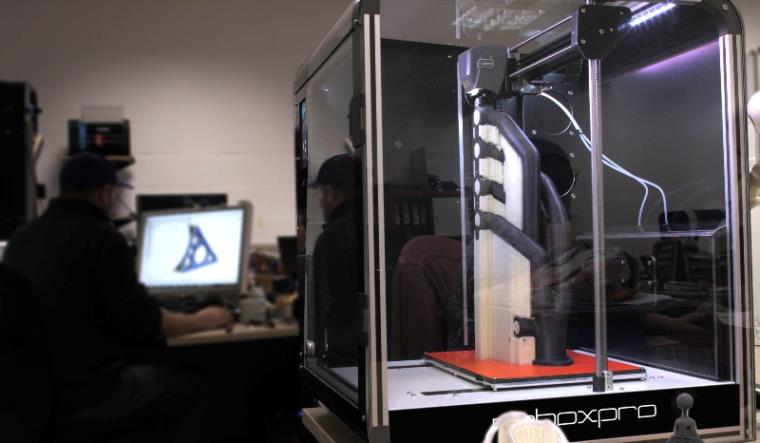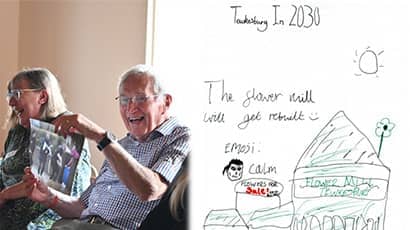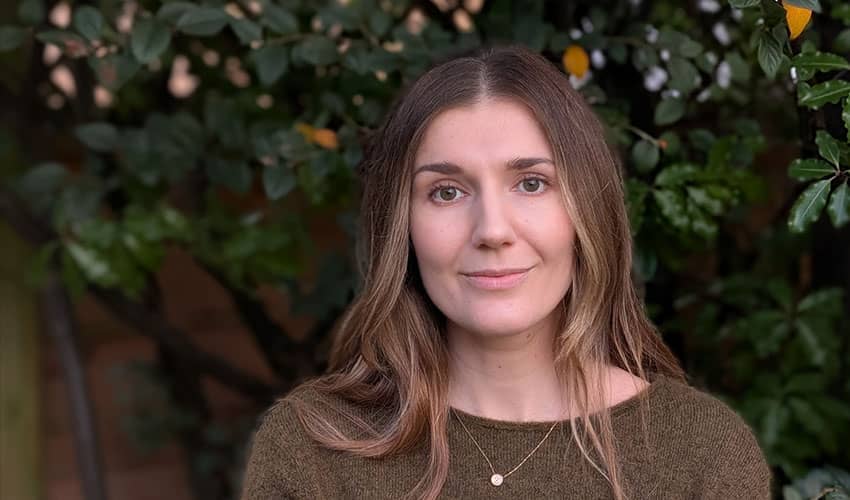UWE Bristol project to create lifelike organ simulators using 3D printing

Researchers from UWE Bristol are exploring how 3D technology can be used to improve surgical training by creating organ simulators which look and feel like real body parts.
The three-year project is one of a number of PhDs funded by the Appearance Printing European Advanced Research School (ApPEARS) at the Norwegian University of Science & Technology, and supervised at UWE Bristol’s Centre for Fine Print Research (CFPR). The aim of the PhD is to create interconnected model organs which mimic the appearance, elasticity and consistency of human tissue, thereby giving surgeons a realistic simulation on which to practice more complex procedures.
Led by David Huson, Senior Research Fellow at CFPR, the project builds upon previous pilot studies into how 3D technologies can be used to develop low cost, high fidelity surgical simulation models.
Mr Huson said: “This is a cross-disciplinary project, and we will be working closely with scientists, artists and surgeons to develop and test a working prototype. Physical organ simulators offer a more ethical alternative to human cadavers or animal subjects which are often expensive to obtain and difficult to access.’’
PhD researcher and CFPR Associate, Marine Shao, who is also working on the project said: ‘‘While there are a number of commercial organ simulators available, they tend to reproduce just the most common procedures and do not accurately replicate the properties and feel of human tissue. This research project will address those limitations and develop a low-cost method of producing organ simulations which are cheaper to produce and more realistic than existing simulators.’’
Researchers will replicate the interconnected organs and tissues of the duodenum, gall bladder, liver, pancreas and bile duct to create a prototype capable of carrying out a laparoscopic bile duct exploration; a complex surgical procedure used to remove stones lodged in the bile duct.
As well as replicating the physical properties of organs, the project also aims to replicate the acoustic properties of soft tissue. Ms Shao added: ‘‘The laparoscopic bile duct procedure involves using ultrasound to assess the bile duct for stones and anomalies, and to carry out anatomical delineation. It is therefore critical that the organ simulator we are developing mimics the acoustic properties of soft tissue, giving surgeons the ability to perform realistic ultrasound examinations in a controlled setting.’’
Speaking of the importance of the project and how it will help surgeons with training, Dr James Clark, General Surgeon at Royal Cornwall Hospital who is Co-Supervisor of the project said: ‘‘Surgical simulators are an essential part of surgical education in modern times. The more complex procedures, however, are rarely well represented by good quality reproducible models which enable the trainee to get a true realistic feel for the operation. This project aims to meet these demands, providing a more representative training model which both looks and feels more representative of the true anatomy.’’
Unlike many existing organ simulators which are made of a single material such as silicone or hydrogel, Ms Shao will incorporate 3D printing technologies, alongside traditional casting methods, to combine different materials and create complex models which are more representative of human organs and tissues.
The Centre for Fine Print Research (CFPR) has been pioneering research in printing methods, technologies and practices since 1998. Working with academia and industries, their mission is to contemplate, understand, innovate and disseminate research on all aspects of print history, fine art practice, manufacturing and materials, from developing 3D printable ceramic materials to disruptive printing technologies and developing new inks.
Related news

04 March 2026
Community play to give Tewkesbury residents a voice
A community‑led play exploring Tewkesbury’s history with the River Severn and future environmental challenges comes to The Roses Theatre on 18 March.

16 February 2026
UWE Bristol researchers awarded grant to explore impact of asset recovery on offenders
UWE Bristol academics have been awarded funding to explore of the impact of asset recovery on deterring offender behaviour and disrupting crime networks.

10 February 2026
Work by UWE Bristol lecturer features in Government’s National Cancer Plan
Work by a UWE Bristol academic has been included in the Government’s National Cancer Plan.

23 January 2026
On-demand minibus services beneficial in rural areas but face financial challenges, trials suggest
Trials of ‘demand responsive transport’ minibus services boosted connectivity for people in rural and suburban areas, according to a new report produced by UWE Bristol researchers.

18 December 2025
UWE Bristol professor appointed National Institute for Health and Care Excellence CEO
Jonathan Benger CBE, Professor of Emergency Care at UWE Bristol, has been appointed as the new chief executive officer of the National Institute for Health and Care Excellence (NICE).

17 December 2025
Findings revealed from first UK study into experiences of mothers who are survivors of rape pregnancy
UWE Bristol academics have revealed the findings of the first UK-based study of the experiences of mothers who are survivors of rape pregnancy.

11 December 2025
Social media influencer work is far more demanding than it looks, research finds
A study exploring the mental health impacts of social media influencer work has revealed that life online is far more demanding than it appears.

25 November 2025
UWE Bristol experts join film Q&A exploring music and melodrama
Academics will take part in the Cary Comes Home Festival, with a post-screening Q&A exploring music, melodrama and emotional storytelling in classic cinema.

17 November 2025
Urgent reform needed to support ambulance-delivered end of life care, study finds
More than three quarters (78 per cent) of paramedics sometimes fear doing the wrong thing when caring for people in the last year of life, new research has found.

13 November 2025
Bristol’s screen industry experiences “boom-and-bust cycle” after post-pandemic recovery, new research from UWE Bristol finds
New research from UWE Bristol provides detailed insight into Bristol's screen sector.

13 November 2025
New AI research to revolutionise animal welfare
A UWE Bristol research project will combine behavioural science and AI to create technology that understands not only what animals do, but how they feel.

10 November 2025
Lessons from Low Traffic Neighbourhoods will drive better public engagement, study finds
Lessons from Low Traffic Neighbourhoods have informed a new toolkit to improve engagement with the public on challenging local street issues.






